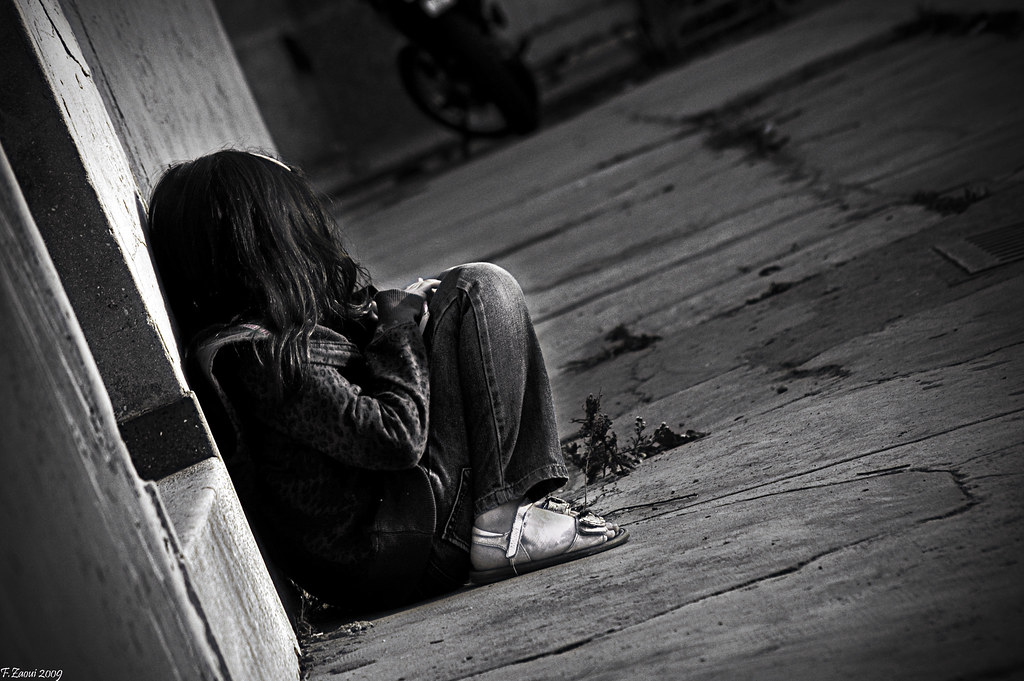When the news of the coronavirus broke in January, little did the world realise the larger consequences of what the outbreak portends. Not many Nigerians considered the full implications of an imminent lockdown as a way of mitigating and flattening the disease’s curve. The reality of these consequences is dawning on us in varying degrees across Nigeria – as well as impacting all spheres of life across the globe. There has been an increasing strain on the economic, educational, social and health sectors. However, as a psychiatrist, the mental health component is my present area of concern. Particularly the emotional and psychological impact on children.
Children, a vulnerable yet significant population of any society, are still mostly seen and not heard, especially in Africa. A considerable number of them still lack the attention and care they deserve or are entitled to. It had been assumed in some quarters that children were somewhat immune to the COVID-19 infection – as implied by early reports, suggesting that children have some degree of immunity to the virus. However, more recent findings show that children are susceptible to the virus and tend to be asymptomatic carriers. A virus with such a complex nature poses challenges and each research supports either an enlightening or confounding information. However, we remain optimistic that we are closer to breakthroughs and the end of the pandemic.
The role of precautionary measures in mitigating the spread of COVID-19, leading up to the dissemination of information, have resulted in the media being awash with regular updates, whether appropriate or otherwise. And regardless of the mental health implications on individuals. Not everyone has the mental capacity to handle such information and really for how much longer? Considering that these consequences can be short, intermediate and long term. Recently, there has been an upsurge of fear, apprehension, anxiety disorders and worsening states of pre-existing mental illness documented in adults. What then happens to children in the COVID-19 pandemic period? Should we be concerned about their emotions?
Children constantly bear the brunt of major life events and upheavals, yet are unfortunately side-lined in some situations. They are at a stage where they learn by observation and imitation. They look to their parents and carers for answers, support and tend to feed on the emotions of adults around them, modelling their behaviour patterns after them. The current disruption in schooling, their normal routine and deprivation of social support systems consequent on the lockdown, may predispose children to some form of psychological distress, if not properly managed.
It therefore become imperative for parents and carers to provide the predictability needed to ensure mentally healthy children in the short and long terms. This may require periods of learning and play. Also, a good time to acquire other skills such as art and craft, learning to play an instrument, learning sign or a new language.
With significant life events, adults tend to be embroiled in their own concerns and there is the tendency to neglect the emotional needs of their children or assume their wards are not affected by these events. Children, on the other hand, communicate their distress in several ways and their reactions differ across ages, cognition, personalities, experiences and support systems. Some may manifest vague symptoms or mimic symptoms of an observed disorder. Whereas, others with prior adverse experiences or some form of psychological challenges may exhibit more obvious symptoms.
Some common symptoms include some becoming more clinging, irritable, or throwing tantrums. Some may have night terrors or nightmares, start to bed-wet or a child who had previously stopped, begins to bed-wet anew or develop changes in their eating patterns. The older children may excessively engage in playing video games, using the internet or bingeing on television.
It is important to place a premium on the emotions of children. To respond and explain with honest, age-appropriate answers, putting in perspective their individual traits and uniqueness. There is a need to be more caring, establish an environment that radiates love and warmth. It is important to reassure them regularly and keep optimism high. Children need to have predictability, such as a regular routine to mitigate their fears and concerns. A need to maintain some level of social connection, despite the apparent chaos. It, therefore, becomes imperative for parents and carers to provide the predictability needed to ensure mentally healthy children in the short and long terms. This may require periods of learning and play. Also, a good time to acquire other skills such as art and craft, learning to play an instrument, learning sign or a new language. Fortunately, there are several online platforms where they can access these. Noteworthy is the importance of monitoring and regulating the extent of information on the pandemic they are exposed to. It may be necessary to have specific times of the day when they view their phones and other digital platforms. All these are however dependent on the parents’ ability to procure data, materials for fun activities in a period of limited resources or access to electricity.
However, not all anxiety-lessening activities require much funds. Exercising and performing house-chores as a family or team helps to reduce anxiety and increases bonding. Not forgetting the importance of eating healthy and getting adequate sleep, which enhance their immunity and promote sound health. There is a need to keep faith as a family, believe in God, find strength and assurance from the Holy book. Research has repeatedly shown that belief in an entity greater than the self or humanity gives hope, enables coping with untoward events and minimises catastrophe.
How can children who dwell in a part of Nigeria where electricity is a mirage appreciate the relentless efforts of agencies and information on COVID-19? Or youngsters who have been deprived of basic education, making them unable to grasp the grim reality of what an outbreak connotes?
While all these seem like the panacea to making the lockdown a memorable experience and helpful in establishing mentally healthy children, one is mindful that only a cadre of the society can afford some level of this lifestyle. How much predictability can a hungry stomach establish? How does one encourage fun activities on an empty stomach? In a period where regular meals are a luxury, learning a new hobby is least on anyone’s mind. How much information can one have access to, when electricity is almost non-existent? Perhaps listening to the radio is a practical alternative for some.
Who exercises or bothers about internet facilities when the family’s income depends on daily earnings and survival is top-most? In a country that has about 69 per cent of its population living below the poverty line, the least of the problems of such minders is the emotional state of their wards. Poverty is the bane of a society and furnishes its malady. How can children who dwell in a part of Nigeria where electricity is a mirage appreciate the relentless efforts of agencies and information on COVID-19? Or youngsters who have been deprived of basic education, making them unable to grasp the grim reality of what an outbreak connotes? Or how do you explain to children in the internally displaced persons (IDPs) camps to wash hands frequently, when water is considered a scare resource?
Apparently, priorities differ across social classes. But do the emotional needs of children differ much? Some may argue that emotional challenges of a child from a poverty-stricken environment, an abusive home or living with a minder with a substance use problem are different from that seen in the middle class strata. I venture to state that these similar challenges exist across dwellings, irrespective of the social class. Even seemingly happy homes are confronted by the uncertainties associated with the pandemic. Disturbingly, the psychological distress created by the lockdown may extend beyond the short term. If Maslow’s hierarchy of needs is to be taken seriously, a child’s essential needs may be majorly physiologic (air, food, drink, shelter, sleep, clothing, warmth) and safety. Sadly, it appears that our society may just have failed them. Or perhaps we should keep faith and act fast!









